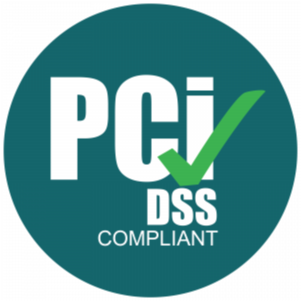The Net Promoter Score (NPS), and its employee counterpart eNPS, is a metric that many businesses use to understand how their customers feel about their organization (in conjunction with the Customer Satisfaction Score). While both metrics measure perception-based data, they are targeting two very different understandings—and knowing the difference is key.
NPS is focused on customer loyalty, which goes beyond just customer satisfaction. What you really want to understand is how likely a customer is to share your product or service with others, speak about it positively online or with others, and how you can keep them loyal to your brand.
So why is NPS so important? We’re going to get into that and help you understand just why you need to do NPS in conjunction with CSAT for more meaningful insights.

A bit of history!
Did you know that NPS is trademarked? It is! It was developed in 2001 by Fred Reichheld, in conjunction with Brain & Company and Satmetrix, as a simple and transparent measurement of recommendation. Such a small thing with such a big impact. As an indicator of loyalty, identifying your “promoters” (within scores 9-10, traditionally), “passives” (scores 7-8), and “detractors” (scores 6 and below) can help companies do many things within their organization, including:
- Use strategic planning to turn passives into promoters
- Find blind spots and pain points in their product/services from detractors’ feedback
- Identify milestones and benchmarks
- Monitor comparisons between them and their competitors from customer perception
- Provide a systematic measurement to trend over time
You can also supercharge NPS by pairing it with driver questions to deliver a deeper understanding of the reasons behind the score.
Reputation management for any brand
Edelman conducted a study which showed that consumers between the ages of 18 and 34 years tend to “trust what influencers say about brands much more than what brands say about themselves.” With that in mind, the NPS is a great way to manage your online reputation! Controlling the conversation, waylaying frustrations before they become critical issues, and listening to the voice of the customer are all things NPS enables you to do.
What is a “promoter,” really?
Say hello to your brand ambassadors whose voice you want to amplify! A promoter is a person, inside or outside of a company, who promotes a product, service, or brand. It’s a simple definition, but one that packs quite a punch. These are the positive word-of-mouth buzz creators. Think influencers, direct-care staff who share your system with their loved ones, and your patients who leave glowing reviews about their experiences.
What is a “passive,” really?
Say hello to your opportunity-drivers! Passives get constantly overlooked, and it’s unfortunate. They are neutral on the playing field, possibly liking what you have, but not enough to share it with others. They tend to not leave reviews, or if they do, words like “okay” or “enough” may pepper their posts. Basically, a passive consumer or patient tells you that you did your job, but nothing more.
What is a “detractor,” really?
Say hello to your greatest strategy drivers! Your detractors are those who are unhappy with your service, or brand, and they typically are vocal about it, just like your promoters. In a single word, they are your critics. Think about this—only about one in 26 unhappy customers will complain, according to GrooveHQ. The rest will churn—or leave without even saying a thing. That’s a lot of potential loss you might not even realize you’re facing!
Business impact
NPS correlates with a few aspects of business growth that are important to note:
- Expansion Revenue – the higher the NPS, the more like the company also has more “expansion revenue,” or revenue you gain from existing customers
- Organic growth – higher NPS scores show more organic growth through referral, organic promotion and marketing from customers
Keep in mind, as a perception-based metric, NPS offers more than just a single data point. Understanding the context, the drivers, and the relevant experiential and operational data can have a huge impact on analysis. Different industries have different benchmarks for standard NPS measurements, and knowing how you rate against the benchmarks can inform business strategies, as well. It’s a very powerful metric, when used correctly.
Now is the best time to get feedback from your customers with powerful analytics to drive action. The more you understand where your customer loyalty lies, the better you can leverage feedback to improve your reputation. An NPS survey is an excellent way to begin. Don’t know where to start? We’re here to support your efforts!














